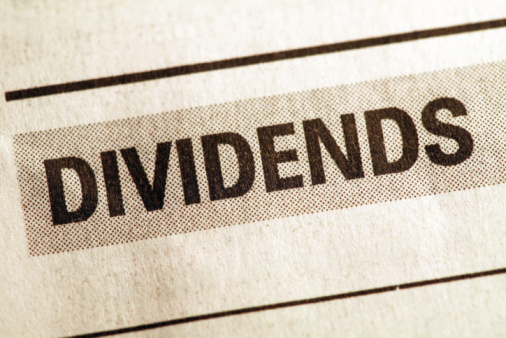Investing
Time for Investors to Worry About Too Much Dividend Growth
Published:
Last Updated:
Investors love dividends, particularly when those payouts are from companies that keep raising their dividends. But what happens when the focus on dividends and return of capital to shareholders becomes too strong? It seems hard to fathom, but some companies may be so focused on dividends and returning capital to shareholders that they are simply gutting their futures.
A couple of things must strongly be considered here before delving into what dividends are safe and which are dangerous. Moody’s has issued a warning that may be years in the making, but corporations and investors better to pay close attention.
Before getting too deep into the Moody’s warning, 24/7 Wall St. wants to offer both sides of the coin and address some of the continued problems about this topic. In this manner, we further addressed some issues that may be behind this trend. Some seem inescapable.
ALSO READ: 4 Attractive Dividend Stocks for a Low Interest Rate World
Standard & Poor’s, the top credit ratings rival of Moody’s, recently pointed out that dividends and buybacks combined reached all-time highs in 2014 — with the revelation was that the dividends and buybacks are supposed to grow even more in 2015.
So, what is it that Moody’s is becoming worried about? The credit ratings agency, which evaluates corporate credit profiles for credit/debt investors, is warning that corporate credit quality in investment grade non-financial companies will deteriorate this year. The logic behind this is that the companies are continuing to limit capital investment, while taking on higher leverage and using cash to reward shareholders.
Moody’s is warning that companies are increasing cash dividends today to the point that they are effectively leaving less free cash flow to pay down their debt — even compared to before the recession. It is suggesting that many companies are managing their finances to an interest coverage metric rather than leverage and principal to be repaid.
Moody’s went on to note that debt investors continue to invest, even as corporate credit quality deteriorates and returns decline. The ratings agency feels that this conundrum is creating demand pull, and it worries that the result is inadvertently rewarding companies that are allocating their earnings in ways that actually weaken their credit quality. The ratings agency said:
Prolonged low interest rates have made dividends more important to investors, leaving companies increasingly fixated on dividend growth. But this weakens their credit quality, especially as leverage is rising. … Low interest rates, ample systemic liquidity and bonus depreciation measures mean companies have more cash, but this has been diverted to benefit shareholders instead of investment. Expansionary monetary policies have stimulated credit supply and demand, but capital spending and business investment have not recovered to pre-recession levels, which may portend low future growth.
ALSO READ: 6 Big Dividend Hikes Expected Very Soon
The fear is not just tied to dividend growth. The report noted that buying back shares is similar to paying dividends. Moody’s went on further to say that share buyback activity relates to company-specific attributes, and that it is not affected by expansionary monetary policies. Moody’s said:
Only about 40% of the companies we looked at routinely buy back shares, and these companies have a common set of attributes.
So, 24/7 Wall St. wants to point out what investors should start to consider here, aside from the Moody’s warning — and why some companies may have no choice in this matter. Again, S&P said dividend growth will continue at the same time that Moody’s is worried about credit quality from this stretching of corporate governance behind dividend policies.
ALSO READ: 7 Companies That Seriously Should Split Their Stocks
What’s important here is that there are some realistic conundrums that corporations face ahead. The first consideration is the death of real economic growth. Then, what about the pressure from regular investors? What about activist investor pressure? What about the fear of the backlash if a company cuts its dividend? Here are a few tidbits to consider on this:
Now, what about some tempering of fear and expectations about dividends stretching balance sheets? Investors should of course not ignore the warning here. It should be obvious, but perhaps this should not create a panic situation. It may take years before the full effect of how corporate governance is realized — and there is the notion that it may turn out to be no problem at all.
Stay tuned.
ALSO READ: Why Yahoo’s $2 Billion Buyback Is Larger Than It Seems
Retirement planning doesn’t have to feel overwhelming. The key is finding expert guidance—and SmartAsset’s simple quiz makes it easier than ever for you to connect with a vetted financial advisor.
Here’s how it works:
Why wait? Start building the retirement you’ve always dreamed of. Click here to get started today!
Thank you for reading! Have some feedback for us?
Contact the 24/7 Wall St. editorial team.